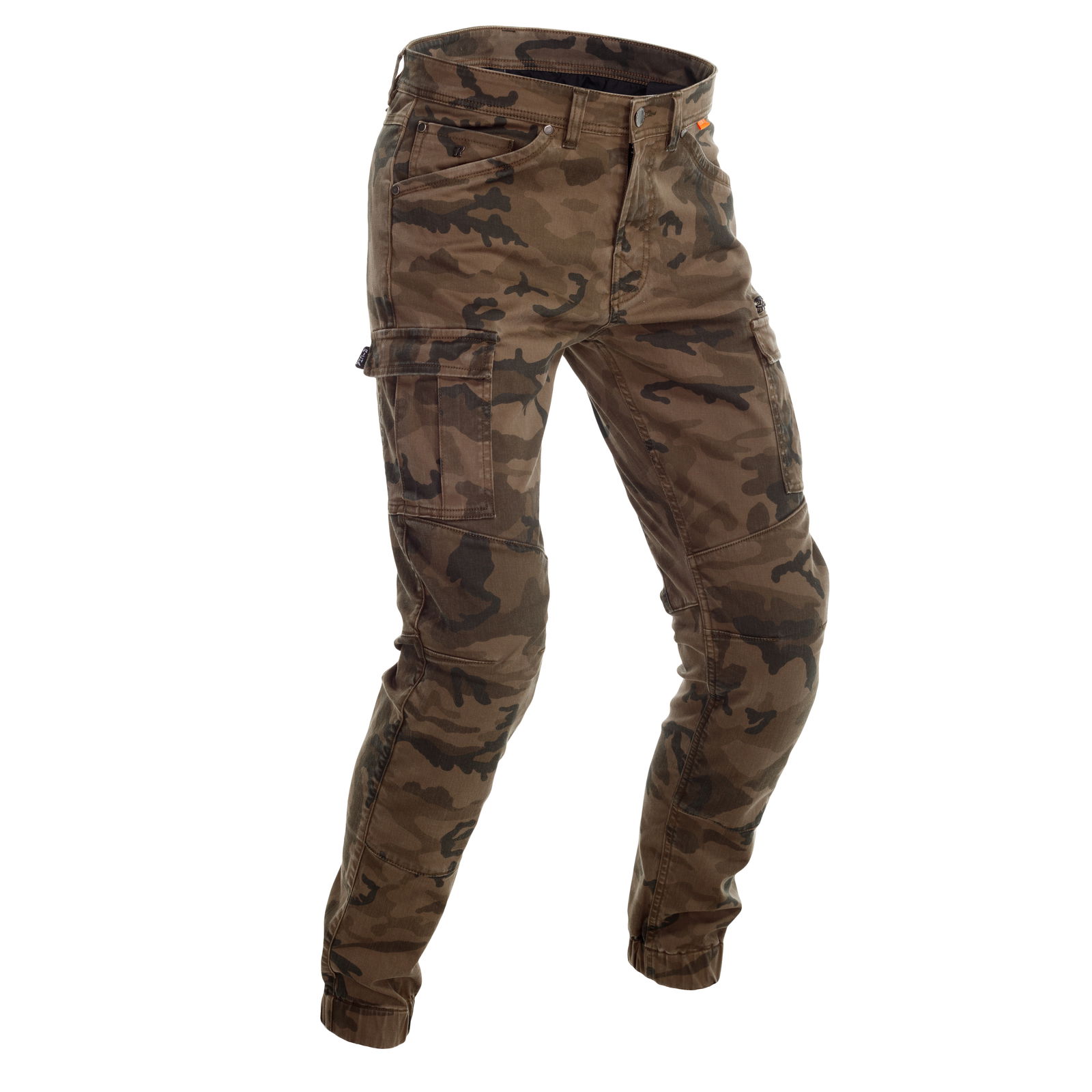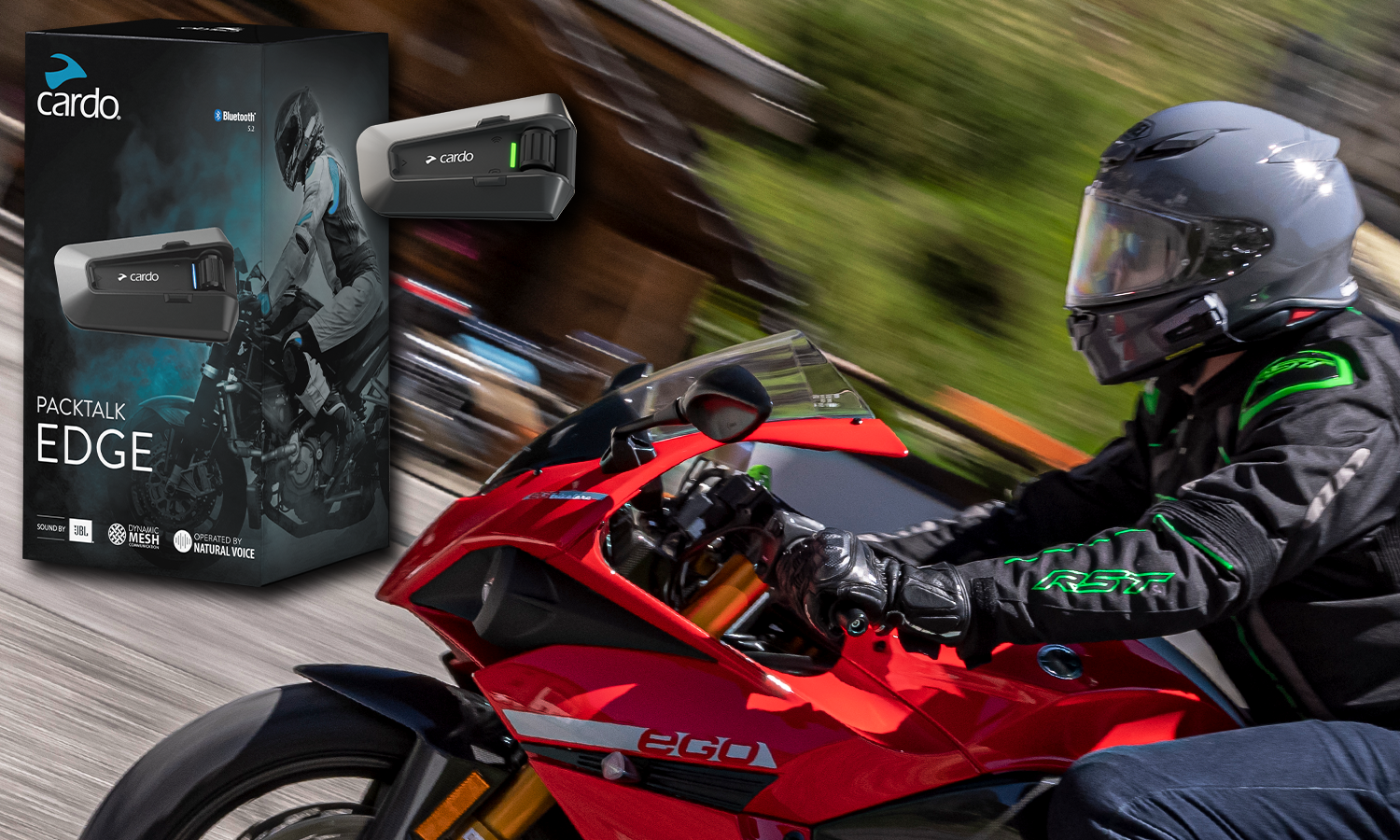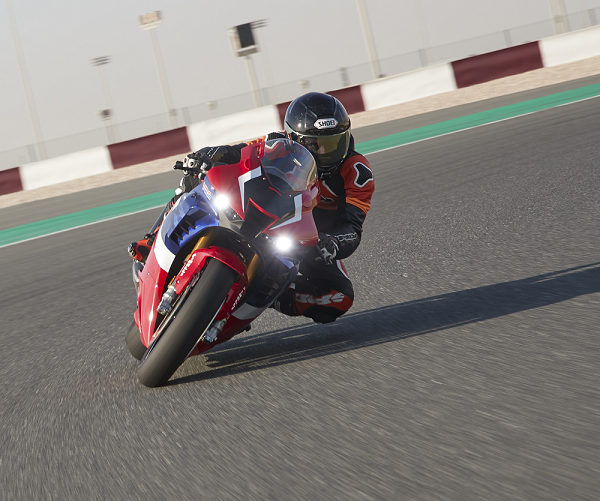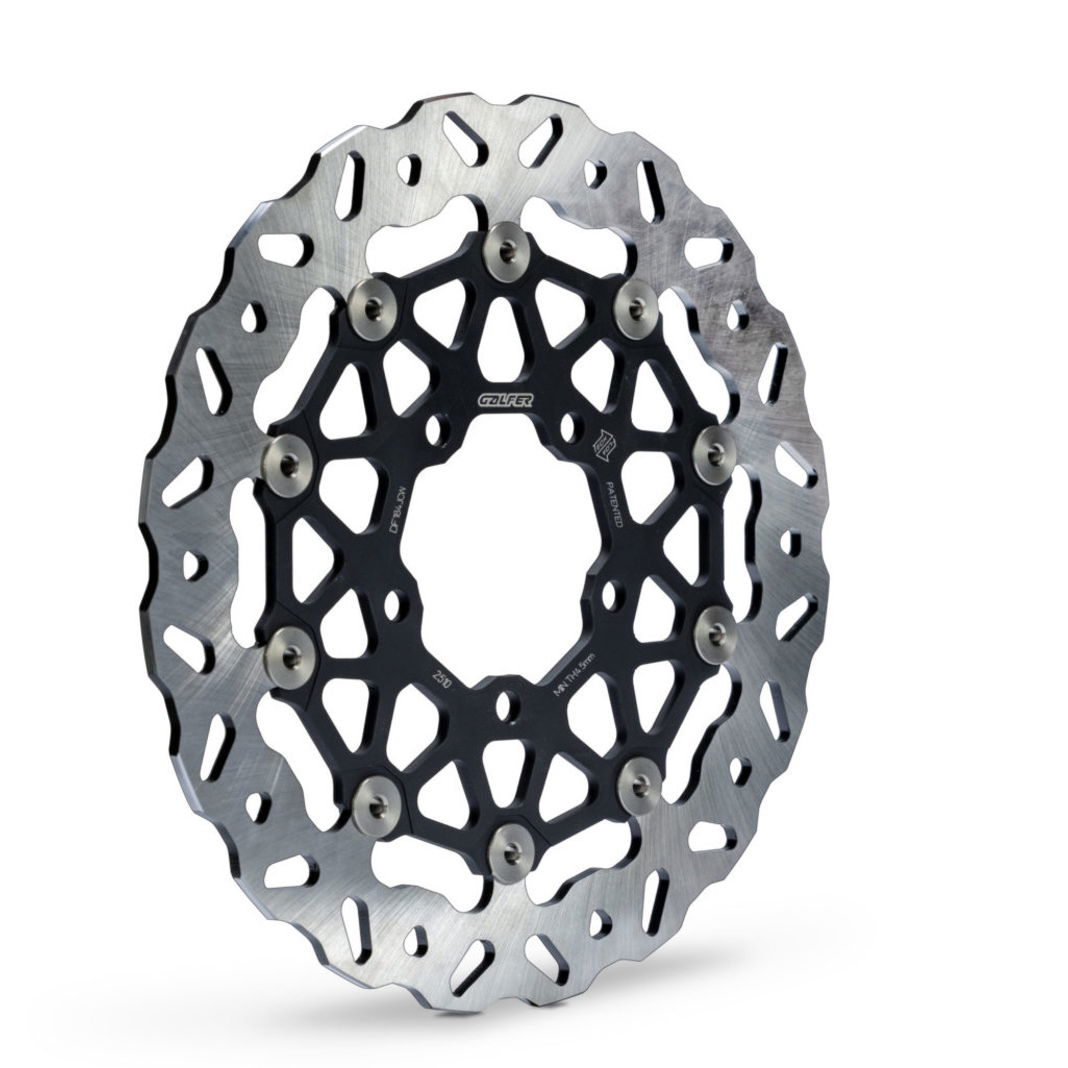Galfer Floatech Brake Discs and G1310 Racing Pads Track Review
To put the latest race brakes from Galfer to the test, we sent Toad to Parcmotor in Spain for a track ride on the new Floatech discs and G1310 racing pads
.jpg?width=1600&aspect_ratio=16:9)
WHEN it comes to bolting on some more performance to your bike, the first port of call for most people is to try and increase the power of the machine, with some products from the likes of Galfer. And that is despite top-flight sports bikes and super nakeds already being plenty powerful enough.
One of the most cost-effective and quickest ways you can improve your lap times is by improving your bike’s braking performance and stability when slowing down. That’s where Galfer comes in, as the Spanish/Italian (Spantalian?!) has been making friction materials since the early 1950s, and its latest products have been specifically honed in the biggest motorcycle racing championships on the planet.
.jpg?width=1600)
We are officially here to test two things, Galfer’s new Floatech brake discs, and its G1310 racing brake pads. We have a selection of sports bikes and super nakeds at our disposal, and the stunningly brutal Parcmotor circuit near Barcelona to play on.
_0.jpg?width=1600)
Sessions 1 & 2 | Kawasaki ZX-10R Ninja | Galfer G1310 Pads | Galfer floating discs
For the first sessions out on this brand new (to me) circuit I jumped on the 2022 Kawasaki ZX-10R Ninja. Its fairly soft delivery and easy-going riding style made it the perfect bike to use as I got to know the 4.1-mile Parcmotor circuit. And while we are on the subject of the track, what a place! Huge elevation changes, motocross levels bumps that have you rodeo riding the bike, and lunar landscape to enjoy between sessions – stick it on the bucket list if you are into Euro track days! It’s not the first place that springs to mind when you think of tracks around Barcelona – but in hindsight, it was a great place to test the latest kit that Galfer had to offer.
.jpg?width=1600)
The last time I ride the 2022 ZX-10R was the slightly less sunny and scenic press test at the Bedford Autodrome in April 2021, where I was impressed by the suspension tweaks made by Kawasaki for the new model. It dives more than the previous generation, allowing you to work the front tyre into the track surface. Impressive feel aside, there was still some brake fade at the end of the sessions, with a spongy front brake appearing after towards the end of the later afternoon sessions. I was keen to see if the G1310s and road and track discs could help to sure that.
.jpg?width=1600)
Trundling down the pitlane I settled into session one, letting the quick lads and locals disappear so I could get some quiet track time and a chance to learn the layout. After about four laps in the baking heat, it became apparent that I needed to totally re-calibrate my braking points for pretty much all the corners. I was getting on the anchors far too early, scrubbing off too much speed in a straight line and not carrying the braking event into the corner as you should. The pads feel substantially more powerful than stock, with a nice and progressive lever feel and not too sharp of an initial bite – something that surprised me given these are a ‘race’ product. It also became clear that the slight brake fade and flaccid lever I encountered late on at the launch were completely resolved.
.jpg?width=1600)
The sintered compound of the Galfer G1310s has been designed to provide more consistent braking at the very highest level. They have been tested on track in the like of Moto2, Moto3, World Superbike, Superstock 1000 and Supersport 600. Now, I’m in no way trying to claim anywhere near the ability of the riders who have helped to develop these pads – quite the opposite in fact, although even in my humble opinion, they did massively improve the stopping power and consistency of the ZX-10R.
For more information on the new G1310 racing brake pads, head to: galfer.eu
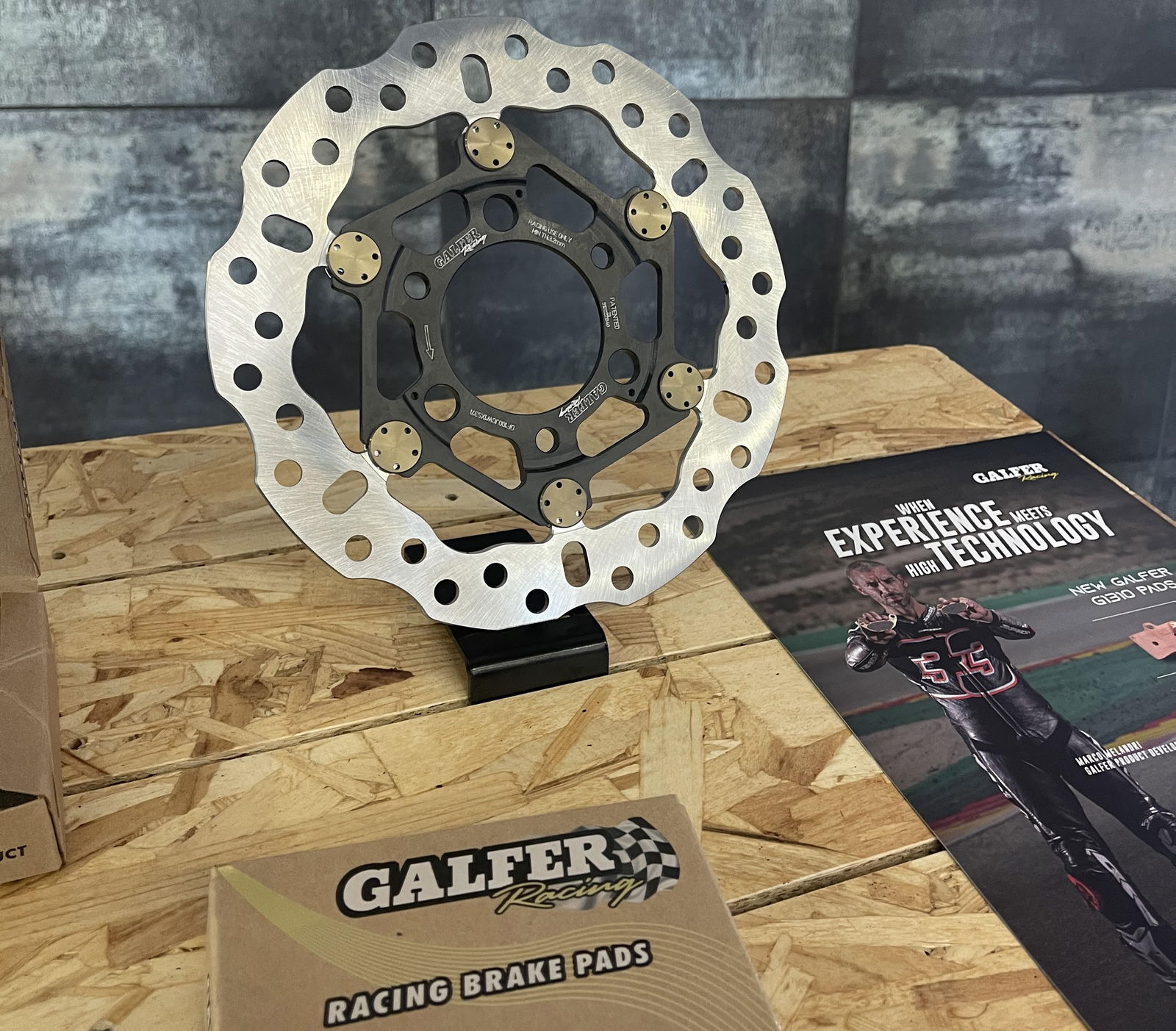
Sessions 2 & 4 | Yamaha RM – Superstock 1000 Race bike | Galfer G1310 Pads & Floatech rotors
For my final two sessions on the track, I took a punt on a Superstock 1000 race bike prepared by the Spanish national endurance outfit SMT. There was more to the decision than simply ticking the ‘I’ve ridden a race bike on track’ box, the R1’s brakes caught my attention on the press riding launch back in 2019, and not for the right reasons. Of all the 1,000cc+ sports bikes, the R1 and R1M have the worst brakes of the bunch. It’s also just about the only bike in the pack that doesn’t use Brembo calipers, instead opting for Advics – a relative unknown in the motorcycle field.
.jpg?width=1600)
On the road and track, the R1’s brakes have a wooden feel at the lever, no masses of initial bite and inspire very little confidence. And when the rest of the competition is shod with the best brakes in the business, that’s a big problem. To see if the situation could be improved with some cost-effective upgrades and elbow grease I clambered aboard the R1 which was shod with the G1310 race pads and Galfer’s new Floatech discs. And before you say, ‘that’s not a fair comparison – race bike versus road bike’, the rules in this Spanish championship are super stringent, with only fork internals, and exhaust and air-filter changes being allowed. The engine and electronics are completely stock from there.
.jpg?width=1600)
The first laps out were again a learning curve, it’s been a while since I rode a bike fitted with race-shift gears, so it took a few laps to find any sort of rhythm. Once I’m a bit more in the zone I start to get a feel for the brakes on the bike. The lever feel is still not quite as progressive and inviting as on some of the Brembo-fitted bikes in the class, but the wooden feel of the stock bike is all but eliminated. There is also a significant amount more initial bite than on any R1 or R1M I’ve ridden in the past had, although still not so much that riding the Parcmotor track became cumbersome or clumsy. All in all, I managed about 20-laps across the two sessions, riding a track with lots of heavy braking zones and sizeable bumps, all in searing 35-degree temperatures. During this time the R1s brakes were improved massively with the upgraded kit from Galfer’s engineers performing perfectly. Not only did they massively improve the feel and performance of what I think to be one of the weakest braking systems on a modern sportsbike, but they also proved their worth in some of the most extreme temperatures I’ve ever ridden a motorcycle in.
.jpg?width=1600)
Galfer Floatech JCW1 motorcycle fitments
DF070JCW1G03: HONDA CBR600 RR’21
DF134JCW160G03: HONDA CBR 1000 RRR 2020
DF190JCW1G03: KAWASAKI ZX 10R 08-15
DF358JCW1G03: SUZUKI GSX R600/750 2021
DF358JCW160G03: SUZUKI GSX R1000 09-15
DF475JCW1G03: YAMAHA R1/6
DF475JCW160G03: YAMAHA R1/6
DF755JCW1G03: BMW S 1000 RR 09-18
DF774JCW1G03: DUCATI PANIGALE V4 R 2019
DF830JCW1G03: MV AUGUSTA F3 675 RS 2021
DF880JCW1G03: DUCATI PANIGALE V2 2017
DF906JCW1G03: TRIUMPH DAYTONA 675
For more information on the Floatech brake discs, head to: galfer.eu
